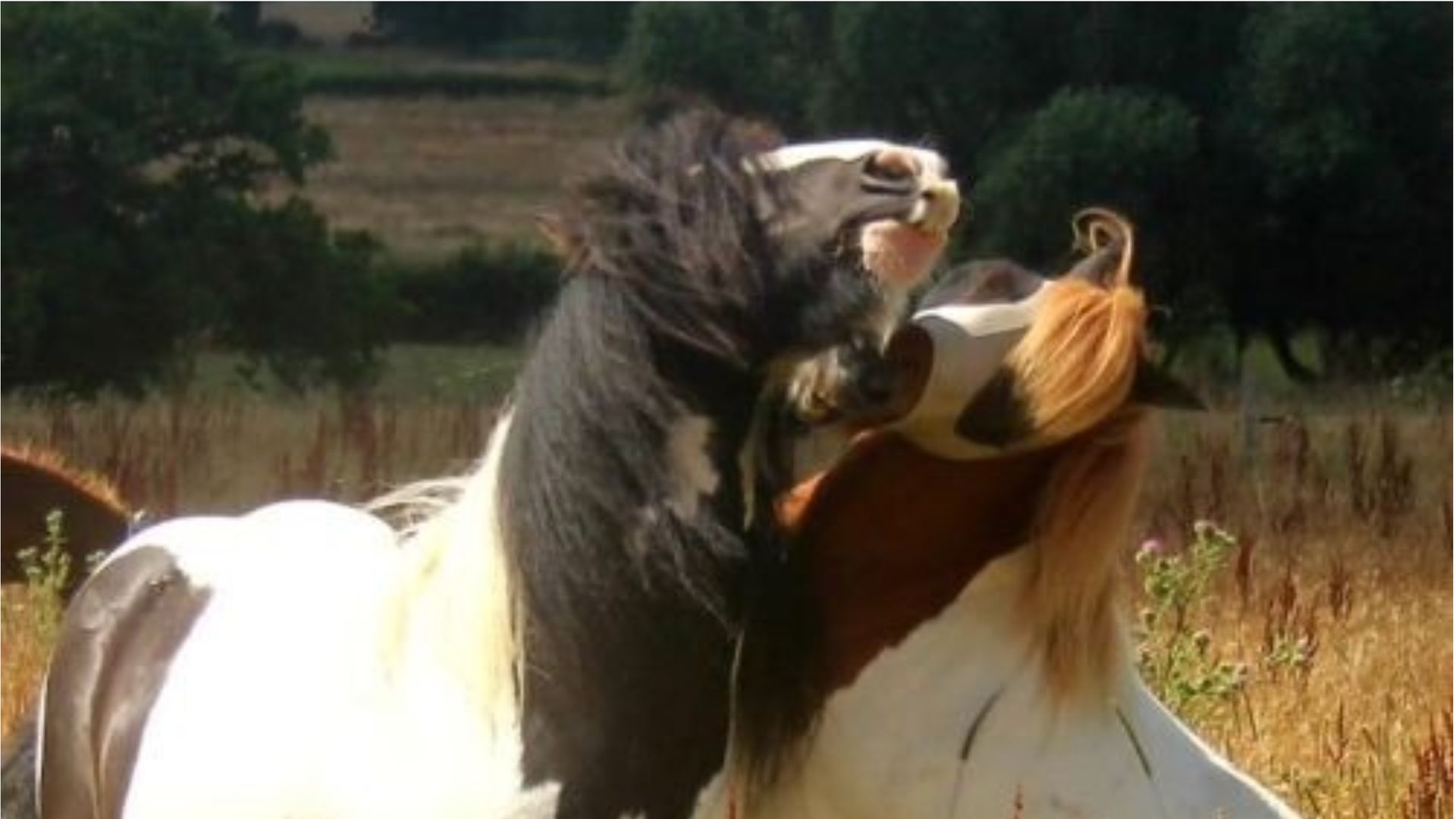Inflammation - what is it?
This is a subtitle for your new post
While inflammation is a natural part of life that is usually beneficial, when inflammatory pathways are constantly activated we start to see more chronic problems develop - cue onset anxiety/stress, brain fog, memory loss ... Inappropriate feed, exposure to toxins, stress levels, even genetics, can impact the body - and the brain's - propensity towards inflammation.
Dr Mark Hyman
Anyone who's had a sore throat, rash, or a sprained ankle, knows about inflammation. Inflammation is a normal, appropriate response of our defence system to infection or trauma - we need inflammation to survive.
The trouble occurs when that defence system runs out of control, like a rebel army hellbent on destroying its own country. Whether horse or human, most of us are familiar with overactive immune responses and too much inflammation in common conditions like allergies or arthritis, or autoimmune syndromes such as pollen reactions. But - it's now thought that deep-rooted, hidden inflammation is at the root of all chronic human illnesses - heart disease, obesity, diabetes, dementia, depression, cancer, even autism. We may feel healthy, but if inflammation is raging inside of us, then we have a problem.
What causes inflammation, what does it do, and how can we control it?
When you hear the word 'inflammation', what comes to mind? For many of us, it probably conjures thoughts of the body’s common response to infections or blunt-force injuries , like swelling after a kick or a fall.
This type of acute inflammation is a critical function to healing the body - it's an innate part of the body’s immune response; without it, infections, wounds, and other types of tissue damage would be unable to heal. Acute inflammation is necessary and beneficial for an effective recovery process. It’s the way the body gets immune activity and nourishment to an area that needs it, and we're all familiar with it on the surface of our body - it’s local heat, redness, swelling, and pain, but it’s very important that inflammation stays where it’s supposed to stay and ends when it’s supposed to end. If it doesn’t, it becomes productive of dis-ease - cue a pro-inflammatory state.
Regular, sustained inflammation is invisible to the naked eye and occurs when the body’s natural defences remain in a constant state of alert. Over time, this sustained inflammation can start to damage healthy tissues, organs, and cells, and eventually lead to a variety of unwanted health conditions - as per our 'Everything's Wrong!' page (in 'Herbal Nutrition by Condition' off the main menu).
Inflammation is a biochemical cascade that runs upstream from the cells, through the tissues, organs and systems. This can take anything up to 48-hrs from the initial trigger, leading to a swelling in the soft tissue - this is the pain stage. Same as for us if we’re travelling on a plane and our feet swell - it hurts like mad because the swelling can’t go anywhere, and worse, we know if we take the shoe off we’ll never get it back on again. Hence why if a horse has acute laminitis, the inflammatory pressure is agonising because the inflammation is completely trapped inside that solid hoof capsule and can't go anywhere.
There's more ... inflammation and weight gain are also connected :
- Poor habits such as sedentary behaviours, unhealthy diets, and consuming high amounts of ultra-processed foods and sugars will eventually increase the number of fat cells that are stored in the body. High levels of fat cells eventually trigger the body to turn on their natural defences, and over time, lead to sustained inflammation.
- As the body continues to store fat and cause persistent weight gain, the fat cells expand beyond their capacity, which becomes another source of ongoing inflammation.
So, inflammation breeds body fat, and body fat breeds more inflammation – a vicious cycle impacting overall health, well-being and the ability to be active.
The good news is that the default state of the body is one of continual cellular regeneration - without this process, the body simply would not exist. However, when the body is sick, this re-generative process is overcome by a de-generative one. This is where nutrition comes in - species-appropriate food literally is medicine, able to fuel the body back into healthy balance by supporting the immune system to full strength again (all covered in our 'Fix the cell to get well' page in our 'Herbal Nutrition by Condition/The Immune System section).
Controlling inflammation through diet
One of the most powerful tools for combating sustained inflammation is diet - feeding the wrong foods not only leads to weight gain but also accelerates the inflammation process. However, if we feed what the body is meant - evolved - to eat, we can effectively switch off inflammation through diet, reducing the level of inflammation in the body, and significantly lower the risk of inflammation-induced health issues down the line, by cutting out those feedbags of ultra-processed, refined carbohydrates and excess sugars.
A study carried out by the Gastrointestinal Diseases Research Unit at Queen’s University in Ontario, Canada, has recognised the distinct connection between inflammation and weight gain. The theory is that refined carbohydrate density, or the percentage that a certain food is made of refined carbohydrates, is one of the most important variables when it comes to a food’s potential to cause inflammation and weight gain. The more refined carbohydrates jammed into a given gram of food, the more likely it is to cause inflammation, and subsequently, weight gain.
Unfortunately, our modern-day food processing practices only add to the level of refined carbohydrates found in our foods today, whether human or horse feed, creating what is now referred to as acellular foods, aka pure, structureless sugar or starch.
Therefore, to reduce inflammation in the body, we need to veer away from those ultra-processed convenience-oriented feedbags that promise all kinds of spin yet deliver very little other than a damaged gut system, and instead focus on feeding what the horse’s gut has evolved to eat, namely hay, hay and more hay, for fibre, fibre and more fibre; remember, a horse is nothing more, and nothing less, than a fibre-fermenting machine.
So, the golden rules:
- Feed hay to optimise the hindgut microbiome.
- Heaps of the right nutrition to keep the cells well via plant power.
- Regular toning of the body's own natural detoxification system - the awesome combo that is the liver and kidneys.
The positive knock-on effects, in addition to helping reduce inflammation, is that feeding a horse how it’s meant to be fed will also make them emotionally and physically stronger too. 😉
More on the whole huge subject of immunity in our Herbal Nutrition by Condition/Immune System chapter, and for all-things-feed, it's our 'Feeding our Horses' section off the main menu.










